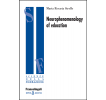Neurophenomenology of education
Synopsis
Released with the Creative Commons License Attribution-NonCommercial-NoDerivatives 4.0 International (CC BY-NC-ND 4.0) in the series Scienze della formazione
The book aims to present an action-research carried out with teachers and educators at University of Naples “Federico II”: through the research and its results, it is possible to analyze the nexus and the connections between phenomenology and cognitive sciences, in the training of the educators, relating to the reflection about the category of intentionality in an educational key. The intentionality, otherwise the deepest motivation pushing the action, is in fact conceived as the “motor” of each educational process both for the trainers and for the subject in training.
Specifically, with our contribution, we focus on the three vectors of the phenomenological inquiry on the category of intentionality: the process of construction, the characteristic of being implicit, and the intersubjectivity. These three vectors impact on the interiorization and promotion of ideals like democratic citizenship, global sensivity, and multiculturalism in the process of construction of professional identity, particularly in the field of education and of the formation of the educators. These three vectors are intended in the framework of the neurophenomenological perspective, which aims to put together the philosophical inquiry with the research in cognitive sciences. However, the purpose is to explore the consequences of this conjunction on the pedagogical reflection on the concept of educational intentionality, empirically showing how they influence the metacognitive processes of teachers and educators during their training course. In order to evaluate empirically how teachers and educators would develop metacogntive reflections about their professional identities and about their potential and their opportunities to promote ideals in the children education, we adopt mixed methodologies of research, using a structured questionnaire and the first-person narratives. The data gathered with these two instruments are analyzed in a comparative way to find out indications and directions to follow about the enactive implicit and co-evolutive dimensions of the training of the facilitators and educators.
Downloads


